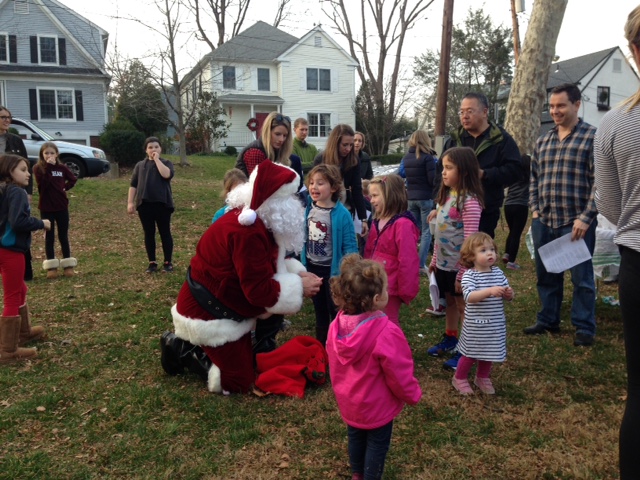Opinion: Will We Have Full STEAM Ahead?
- Details
- Written by: Mayra Kirkendall-Rodríguez
- Hits: 6145
 The Scarsdale School Administration announced during its January 13th Board of Education meeting that it is presently working on developing the K-12 STEAM curriculum. Given the incredible demand for technical, science, and math skills globally, the administration's work is commendable.
The Scarsdale School Administration announced during its January 13th Board of Education meeting that it is presently working on developing the K-12 STEAM curriculum. Given the incredible demand for technical, science, and math skills globally, the administration's work is commendable.
In order to be able to say 'Full STEAM Ahead,' it is very important to remember that foreign languages are an extremely useful, but neglected, Art, that is critical to the successful implementation of a STEAM program. Reams of academic research internationally and in the US document that early foreign language acquisition, substantially helps children with cognitive development, and importantly, to improve math skills and standardized test scores.
Additionally, scientists have confirmed the health benefits of foreign language acquisition. For example, the Alzheimer's Society in the UK and the University of Kentucky College of Medicine in Lexington have produced a number of studies demonstrating how foreign language acquisition can help slow down the onset of dementia and Alzheimer's. Neuroscientists have also found benefits to the heart and emotional well-being to studying foreign languages.
Unfortunately, the US is in a foreign language crisis; less than 20% of Americans speak a foreign language. According to Department of Defense and Department of Education analyses, we are not producing a sufficient amount of people who can speak languages critical to US national security. Moreover, there is significant demand in the US for foreign language speakers in multiple sectors of the public and private economy.
Scarsdale schools could really differentiate themselves by enabling our students to be proficient, if not fluent, in at least one foreign language when they graduate. Speaking a foreign language can also help Scarsdale students be more unique when they apply to undergraduate and graduate schools. Anecdotally, at different times for two decades, I have volunteered to interview prospective applicants to my undergraduate and graduate alma maters; by far, the biggest missing skill in applicants is being able to speak even Spanish fluently, much less a more challenging foreign language.
The Scarsdale Administration announced in December 2015 that it will convene another World Language Committee to study how Romance languages are taught in Scarsdale schools and how Mandarin might be incorporated earlier than in high school. Two world language committees were convened in 2008 and more recently in the fall of 2015. Both committees found that the Scarsdale community has great interest in Spanish and Mandarin.
For the sake of transparency and a good use of taxpayers' dollars, it would be very helpful for the administration to inform the Scarsdale community:
- who will be in the new world language committee and when will it be established,
- the type of foreign language and level of fluency of committee members,
- the objectives of the group,
- the timeline of the language study proposal, and
- when Scarsdale children will have more choice of foreign languages beyond the current Romance language offerings.
Recently, a Scarsdalian young man won a prestigious Schwarzman scholarship to study in China. In addition to his native English, he acquired fluency in Mandarin and Spanish; however, he acquired those foreign languages in a private Catholic school. The Scarsdale administration, together with the Board of Education and dedicated parents, is very capable of empowering Scarsdale's children to learn foreign languages in our public schools. Just because we live in Scarsdale Village, does not mean that we have a wall that impairs having a global vision. Let's make 2016, the year of FULL STEAM AHEAD!
This article was submitted by Fox Meadow Resident Mayra Kirkendall-Rodriguez
Schools Foundation Produces Videos and SBNC Announces Election Results
- Details
- Written by: Joanne Wallenstein
- Hits: 5319
 The Scarsdale Schools Foundation has created two new videos describing plans for a new Design Lab and Fitness Center at the high school, for which the foundation is seeking to raise $2.6 million. The videos are available using the links below.
The Scarsdale Schools Foundation has created two new videos describing plans for a new Design Lab and Fitness Center at the high school, for which the foundation is seeking to raise $2.6 million. The videos are available using the links below.
The 3-minute videos highlight the positive impact the two projects will have on teaching and learning at SHS. They feature Superintendent Thomas Hagerman and Principal Ken Bonamo, along with Athletic Director Ray Pappalardi for the Fitness Center and teacher Lisa Yokana for the D-Lab. As SSEF Executive Director Steve Seward explained, "we hope these short films will be helpful – especially for parents of children who are not yet in the high school – in understanding the crucial role these projects will play in the academic lives of students and teachers at the high school."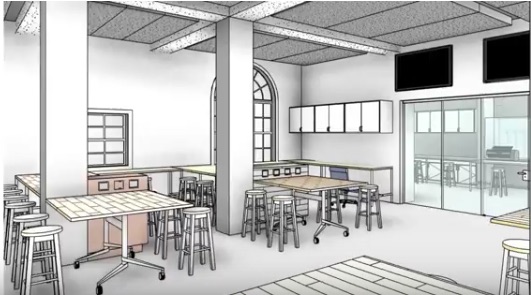
Click here to view the Design Lab video:
Click here to view the Fitness Center video:
School Board Nominating Committee Election Results:
The results of the Scarsdale School Board Nominating Committee are in. Here are the candidates who were chosen to join the Scarsdale School Board Nominating Committee at the SBNC elections on Tuesday, January 12th:
Edgewood: Michael Chayes, Jordan Copeland
Fox Meadow: Miriam Beveridge, Sang Han
Greenacres: Sharon Kass Higgins, Tanya Singer
Heathcote: Manos Makrakis, Melissa Pecullan (Fielding)
Quaker Ridge: Jonathan Drescher, Eric Premisler
There were 179 total votes cast in the election. Fox Meadow had the highest number of voters with 74 ballots cast. Heathcote had 34 voters. Greenacres had 27 ballots cast and Edgewood and Quaker Ridge each had 22 voters.
This year's ten new SBNC members will join twenty others already on the committee serving staggered three-year term. The committee will have its first meeting on Sunday, January 24th and by the end of March, the SBNC will nominate three candidates to run for the Scarsdale Board of Education to fill the seats currently held by Leila Shames Maude, William Natbony and Suzanne Seiden. Maude and Natbony are completing their first three-year terms and each is eligible for re-nomination. Seiden is completing her second three-year term and is not eligible for re-nomination. The SBNC Board of Education candidates, along with any other candidates who may choose to run, will be up for public election at the same time as the School Budget vote in May 2015.
Scarsdale10583 Preschool Guide 2015
- Details
- Written by: Joanne Wallenstein
- Hits: 9741
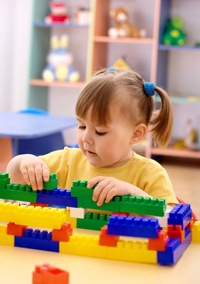 If you've got a toddler, now's the time to consider where to enroll him or her for preschool in the fall. Scarsdale has lots of terrific options in town and nearby. Take a look at the programs we list below and contact the directors to set up a tour. You're sure to find a school that conforms to your educational philosophy, meets your schedule and offers your child a positive first experience at going off to school. Check out a few of the programs in the area:
If you've got a toddler, now's the time to consider where to enroll him or her for preschool in the fall. Scarsdale has lots of terrific options in town and nearby. Take a look at the programs we list below and contact the directors to set up a tour. You're sure to find a school that conforms to your educational philosophy, meets your schedule and offers your child a positive first experience at going off to school. Check out a few of the programs in the area:
Alef Bet Preschool uses a progressive approach to educate young children in a stimulating learning environment, helping them grow into empathetic, capable learners for life. The newly renovated site in New Rochelle offers light-filled classrooms and a natural playground. Chabad Hebrew School is an exiting innovative Hebrew school program where Judaism comes alive. Alef Bet is located at 1228 North Avenue, New Rochelle. Visit our website for more information at alefbetschool@gmail.com or call 914-712-8332.
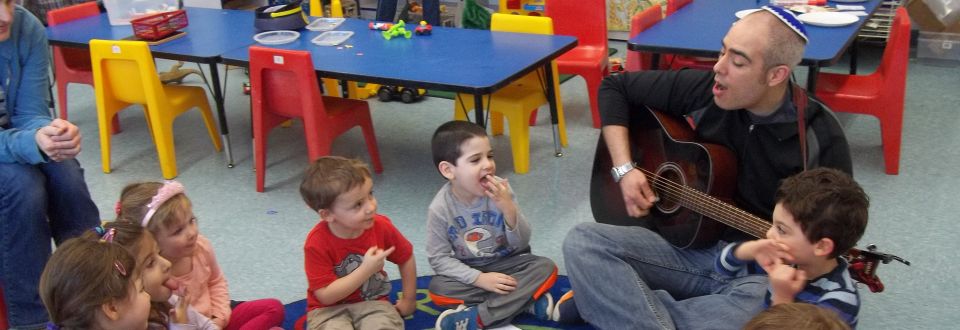 Congregation Kol Ami: The Early Childhood Program at Kol Ami is dedicated to providing a comprehensive and developmentally appropriate curriculum teaching and modeling Jewish values. We believe that children learn best through experiential play and provide for these rich experiences within warm, accepting, and nurturing surroundings. All of our Head Teachers have Masters Degrees in Early Childhood or N-6 or related educational fields. We offer a wide range of programs for children (from 2 to 5 years old) and their families. Our A Step Ahead! program for Fall 5 year olds provides full day Pre-K learning. For more information, contact: Nan Blank, Early Childhood Program Director at nanblank@nykolami.org or call her 914-949-4717 x107
Congregation Kol Ami: The Early Childhood Program at Kol Ami is dedicated to providing a comprehensive and developmentally appropriate curriculum teaching and modeling Jewish values. We believe that children learn best through experiential play and provide for these rich experiences within warm, accepting, and nurturing surroundings. All of our Head Teachers have Masters Degrees in Early Childhood or N-6 or related educational fields. We offer a wide range of programs for children (from 2 to 5 years old) and their families. Our A Step Ahead! program for Fall 5 year olds provides full day Pre-K learning. For more information, contact: Nan Blank, Early Childhood Program Director at nanblank@nykolami.org or call her 914-949-4717 x107
The JCC of Mid-Westchester boasts a 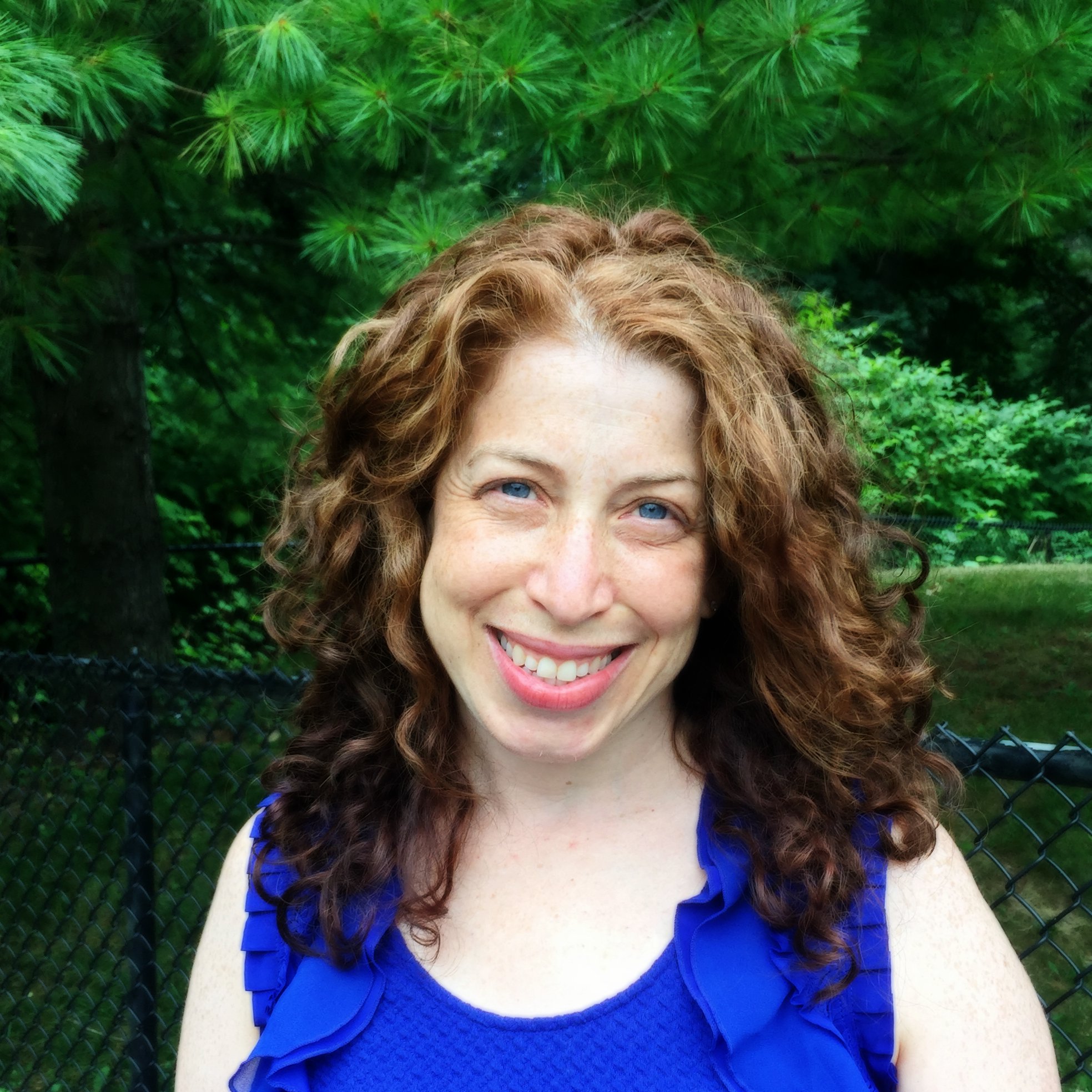 cutting edge early childhood center that encourages all families to consider joining regardless of their religion, race, sexual orientation. At this well equipped center, children from 17 months to 5 years are steeped in an atmosphere that provides tools to inspire creativity, learning, joy and education. Activities include gym and gymnastics, swimming, nature study, music, creative movement, science, math, literature, world cultures, and more. The JCC has tailored its' programming to what parents have voiced they value most: Excellent programming, flexible school days (half day, full day) nurturing environment, easy drop-off late pick-up, extra activities under one roof. What sets it apart is the quality of the staff: experienced early childhood teachers, many with masters' degrees. Caryn Symons 914-472-7095.
cutting edge early childhood center that encourages all families to consider joining regardless of their religion, race, sexual orientation. At this well equipped center, children from 17 months to 5 years are steeped in an atmosphere that provides tools to inspire creativity, learning, joy and education. Activities include gym and gymnastics, swimming, nature study, music, creative movement, science, math, literature, world cultures, and more. The JCC has tailored its' programming to what parents have voiced they value most: Excellent programming, flexible school days (half day, full day) nurturing environment, easy drop-off late pick-up, extra activities under one roof. What sets it apart is the quality of the staff: experienced early childhood teachers, many with masters' degrees. Caryn Symons 914-472-7095.
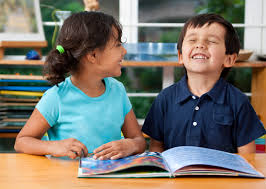 Kids Base Little School: Now is the time to apply for the 2016-2107 school year at The Little School. We offer Half-Day Two's program in the morning and the afternoon; Half-Day and Full Day Three's and Full Day Four's as well as early drop-off at 7:00am and Extended Day Child Care until 6:30pm.
Kids Base Little School: Now is the time to apply for the 2016-2107 school year at The Little School. We offer Half-Day Two's program in the morning and the afternoon; Half-Day and Full Day Three's and Full Day Four's as well as early drop-off at 7:00am and Extended Day Child Care until 6:30pm.
Our facility includes 8 large classrooms and a newly renovated enclosed playground.
We focus on cognitive, linguistic and social-emotional competencies in our efforts to educate the whole child. We strive to make each child's first school experience a positive one that inspires a lifelong love of learning.
We are proud to be accredited by the National Association for the Education of Young Children (NAEYC) meeting rigorous standards for health, safety, teacher qualifications, curriculum and ongoing training. We work closely with Scarsdale Schools to ensure that our children are well prepared for kindergarten and future years.
The Little School is located at 307 Mamaroneck Road, Scarsdale in front of the Pool Complex. For further information or to request an application, please call 914-472-5409; email office@kbls.org or visit our website at www.kbls.org.
Mazel Tots® provides a warm and stimulating 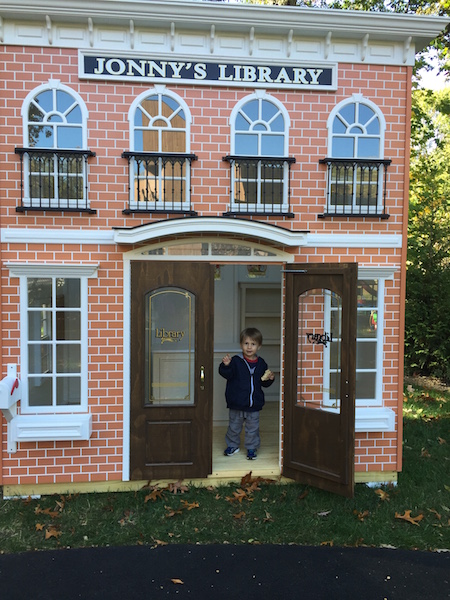
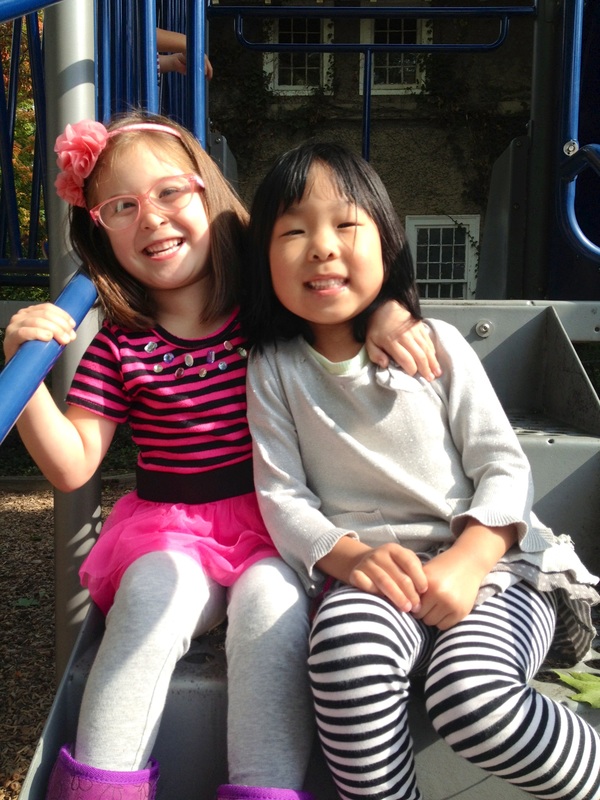 The Scarsdale Community Baptist Nursery School prepares 2-4 year-olds of all backgrounds to thrive in kindergarten and beyond. We are committed to providing a nurturing environment while stimulating young minds as they become life-long learners. Our professional staff focuses their attention on each child and seeks to aid in their development. Our above-ground rooms fill with direct sunlight and provide views of surrounding parks. Being located inside the Village of Scarsdale creates opportunities for an array of interactions with the community (parades, art projects etc.). Parents are encouraged to engage in the tailor-made, individualized, educational process. Families here often form a unique bond as they share meals and gather after school at the spacious playground. Enrollment is underway for 2016-2017. You can also visit scarsdalenurseryschool.org for more information.
The Scarsdale Community Baptist Nursery School prepares 2-4 year-olds of all backgrounds to thrive in kindergarten and beyond. We are committed to providing a nurturing environment while stimulating young minds as they become life-long learners. Our professional staff focuses their attention on each child and seeks to aid in their development. Our above-ground rooms fill with direct sunlight and provide views of surrounding parks. Being located inside the Village of Scarsdale creates opportunities for an array of interactions with the community (parades, art projects etc.). Parents are encouraged to engage in the tailor-made, individualized, educational process. Families here often form a unique bond as they share meals and gather after school at the spacious playground. Enrollment is underway for 2016-2017. You can also visit scarsdalenurseryschool.org for more information.
Call Director, Dina Bove at 914-722-0278 email scarsdalenurseryschool@gmail.com to arrange a tour. We are located at 51 Popham Rd. inside the Village of Scarsdale.
 The Scarsdale Congregational Church Nursery School (SCCNS) has long tradition of nurturing the hearts and minds of children in the Scarsdale community for more than 50 years. We are a play-based, non-sectarian preschool whose goal is to promote social development, instill a desire to learn, encourage verbal expression and improve coordination and motor skills. Our safe, diverse and nurturing classrooms are located in a bright, ground-floor building on the grounds of the Scarsdale Congregational Church, within walking distance of Scarsdale Village. As we foster young children's growth, we are committed to building a strong sense of community between parents, teachers and children. Enrollment is open now for the 2016-2017 school year. For more information, visit us at www.sccnurseryschool.com.
The Scarsdale Congregational Church Nursery School (SCCNS) has long tradition of nurturing the hearts and minds of children in the Scarsdale community for more than 50 years. We are a play-based, non-sectarian preschool whose goal is to promote social development, instill a desire to learn, encourage verbal expression and improve coordination and motor skills. Our safe, diverse and nurturing classrooms are located in a bright, ground-floor building on the grounds of the Scarsdale Congregational Church, within walking distance of Scarsdale Village. As we foster young children's growth, we are committed to building a strong sense of community between parents, teachers and children. Enrollment is open now for the 2016-2017 school year. For more information, visit us at www.sccnurseryschool.com.
Please contact Ginny Clark School Director, 1 Heathcote Road, Scarsdale, NY 10583 by phone at 914-723-2440 or email: sccnschool@gmail.com.
The Early Childhood Center of Westchester Reform Temple is dedicated to guiding, supporting and enriching young children's lives spiritually, intellectually, emotionally, socially and physically. Our warm and 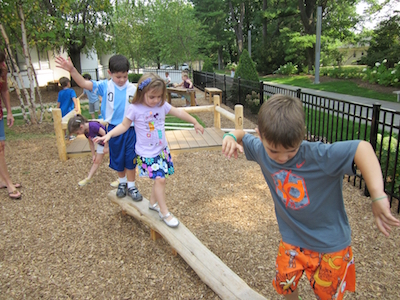 loving staff of experienced educators, along with Temple clergy and specialists, work in partnership to implement our academic program. Using developmentally appropriate best practices, and lots of love and support, we prepare our students for the demands of kindergarten readiness. Our pre-school curriculum reflects continuity of content and skills, subsequent growth at each age level, and is responsive to children's interests and individuality in the creation of emergent curriculum. Our LEED certified facility offers beautiful indoor classrooms, play spaces and two age-appropriate outdoor playgrounds, filled with light and surrounded by nature. We encourage children's pride, knowledge and joy of Judaism, as we join together with parents to provide an environment where children love to learn and enjoy celebrating Jewish family life. Classes are offered for ages toddler to four-year-olds, and we offer half day and full day options for older children. For information, and to schedule a visit to our pre-school, please contact ECC Director Sue.tolchin@wrtemple.org or call us at 914 723-5493.
loving staff of experienced educators, along with Temple clergy and specialists, work in partnership to implement our academic program. Using developmentally appropriate best practices, and lots of love and support, we prepare our students for the demands of kindergarten readiness. Our pre-school curriculum reflects continuity of content and skills, subsequent growth at each age level, and is responsive to children's interests and individuality in the creation of emergent curriculum. Our LEED certified facility offers beautiful indoor classrooms, play spaces and two age-appropriate outdoor playgrounds, filled with light and surrounded by nature. We encourage children's pride, knowledge and joy of Judaism, as we join together with parents to provide an environment where children love to learn and enjoy celebrating Jewish family life. Classes are offered for ages toddler to four-year-olds, and we offer half day and full day options for older children. For information, and to schedule a visit to our pre-school, please contact ECC Director Sue.tolchin@wrtemple.org or call us at 914 723-5493.
If you would like to add your school to the list, contact us for details at scarsdalecomments@gmail.com.
Holiday Cheer in Davis Park
- Details
- Written by: Matthew Martin
- Hits: 4376

After the tree lighting ceremony, Santa Claus then visited Davis Park to the delight of all children (young and old alike). Santa spread his holiday cheer by distributing candy canes to the children.
The Arthur Manor Holiday Sing and Tree lighting ceremony, which began in the 1930s, is held every year in December at Davis Park.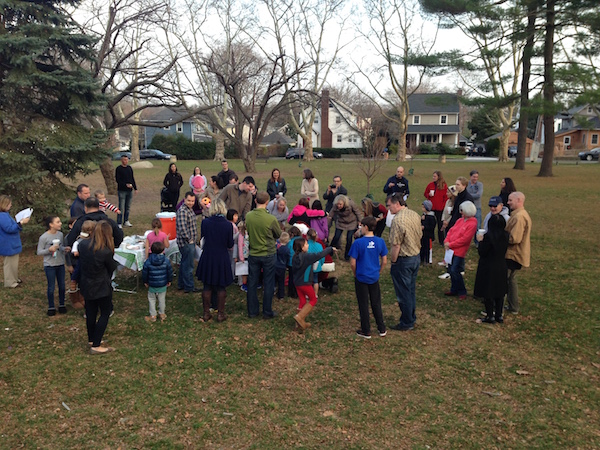

Board to Vote on Mandarin at December 14 Meeting
- Details
- Written by: Melissa Hellman
- Hits: 10004
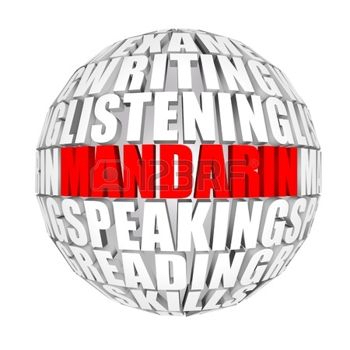 At the December 2, 2015 Board of Education meeting, President Lee Maude instructed Board members that at the next Board meeting scheduled on December 14 they would vote on the issue of including Mandarin in the middle school for 2016-2017. She added that each Board member should be prepared to make an individual statement as to why he or she has voted "yes" or "no" on the subject. She asked that Board members quickly issue a request for any further information needed in order to make a thoughtful decision on that date.
At the December 2, 2015 Board of Education meeting, President Lee Maude instructed Board members that at the next Board meeting scheduled on December 14 they would vote on the issue of including Mandarin in the middle school for 2016-2017. She added that each Board member should be prepared to make an individual statement as to why he or she has voted "yes" or "no" on the subject. She asked that Board members quickly issue a request for any further information needed in order to make a thoughtful decision on that date.
Board members will also be asked to vote on the issue of revising the busing policy. Some Board members expressed concern about having to make a decision in isolation of other budget considerations. Other Board members thought it was valuable to separate the decisions from the crunch of the budget. In any event, it was deemed important to respond to the community now on these two issues that have generated a lot of discussion. Click on these links to read our coverage of busing and Mandarin instruction in the schools.
Also, Board President Maude announced that on December 1 the Board received a detailed report from the community Mandarin Team providing further advocacy for Mandarin in the middle school as well as recommendations for addressing issues with scheduling and leveling within the confines of the house system. The Executive Summary of the report appears below. If any community member is interested in reviewing the entire report, please send an email request to Mayra Kirkendall-Rodriguez (mrvassoc@yahoo.com).
Be sure to attend the December 14, 2015 business meeting that begins at 8:00pm to see the how the Board votes.
Executive Summary of Report from The Mandarin Team
Recently, Mandarin in the Middle School Initiative Team (MMSIT), compromised of a group of Scarsdale parents, submitted a memorandum to the Scarsdale school administration and the School Board with detailed analysis of the benefits of extending Mandarin into the Middle School. MMSIT will be commenting on this report at the December 14th school board meeting and welcomes you to join them. This is the Executive Summary of the 100-page memorandum prepared by Claire He, Brice Kirkendall-Rodríguez, Mayra Kirkendall-Rodríguez, Joanne Teoh, and Julie Zhu.
After the Soviet Union launched Sputnik on October 1957, the United States Congress signed the National Defense Education Act , establishing the legitimacy of federal funding for higher education, including for foreign language education. Almost six decades later, the US is in a second language illiteracy crisis . Less than 20% of Americans report speaking a language other than English, while 53% of Europeans and increasing numbers in other parts of the world can converse in a second language .
Numerous studies demonstrate that studying and speaking a foreign language aid with cognitive development . Even without ever leaving the US, the private and public sectors have significant demand for foreign languages speakers , especially those who speak non-Romance languages. Additionally, foreign language speakers in the US command a salary premium .
In a World Language Committee assembled by the Scarsdale Union Free School District , the committee stated in April 2008 that 'Mandarin remains the Committee's language choice for its strategic importance in the world economic scene, its connection to 21st century skills, and its interest to Scarsdale students and the community.' The World Language Committee recommended that Mandarin be added starting in the sixth grade. At that time, due to budget constraints and a desire to further analyze how Mandarin would be implemented in the middle school, the decision was made to add Mandarin only to the high school curriculum.
Over seven years later, Mandarin has not been introduced in the Scarsdale Middle School. Foreign language instruction does not begin until the second grade and is limited to Spanish, which is taught only twice every six days without differentiating ability; courses are often taught by non-native instructors. In the Middle School, foreign language choice consists of two Romance languages, Spanish and French, where students also are not differentiated by ability and classes are often taught by non-native speakers.
The Mandarin in the Middle School Initiative Team , advocates Mandarin inclusion. China is of paramount importance to the United States, since it is the second largest economy globally. China is now the US's second largest trading partner after Canada .
Mandarin is spoken by over a billion people globally, while in the US, Mandarin is the third most spoken language after English and Spanish. The Chinese population is the fastest growing group in the US .
President Obama launched 'The 1 Million Initiative' to increase the number of Mandarin speakers in the US; moreover, Mandarin is one of the languages considered to be critical to the U.S. national security by the U.S. Department of Education . Across the United States and in nearby tri-state public and private schools, Mandarin is already being taught in middle schools and sometimes even in pre-school and elementary schools. Middle schools in nearby Brewster, Croton Harmon, Mamaroneck, New Rochelle, Pelham, Rye, and White Plains offer Mandarin, as do middle schools in Westport, Connecticut, Linden and Princeton, New Jersey, and Great Neck, Syosset, and New York, New York.
On October 2015, the Scarsdale School Administration sent out four surveys to determine language demand both in the Middle and High Schools. The response to all surveys was significantly higher than typical email surveys and far higher than voter turnout for the Scarsdale school budget . Over 80% of Scarsdale parents who responded to the K-5th grade survey want the current Romance language program expanded. Of those parents, over 50% want Mandarin included. Despite the survey results, the Scarsdale administration determined that the survey response rate was 'too low' without providing a comparison benchmark.
The Mandarin in the Middle School Initiative Team proposes that the administration improve the current course scheduling. We recommend that an entire house takes languages in the same period. Periods 1, 2, 3, 7 and 8 do not conflict with lunch for any grade. Four of these could be used to teach world languages. Students within each house should be enrolled in classes on the basis of their language ability and not grade. Placement tests (oral and verbal) would determine student distribution among levels at the start of each school year .
Our recommendation would allow not only including Mandarin in the Middle School, but also would provide the ability to improve greatly how Spanish and French are currently taught by teaching those languages at different levels to accommodate students' different language backgrounds.






